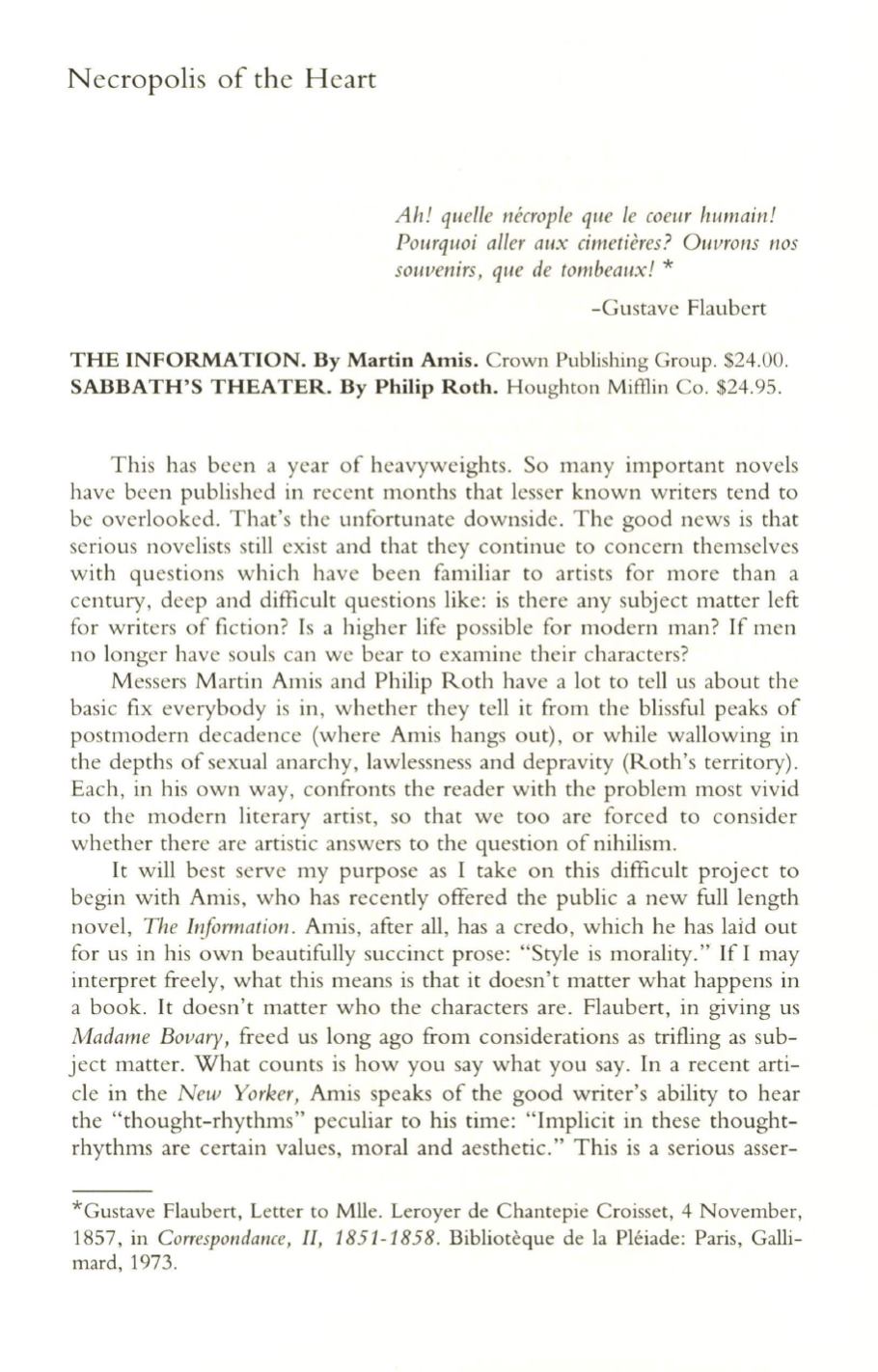
Necropolis of the Heart
Ah! quelle necrople que Ie coeur humain!
Pourquoi aller aux cimetieres? Ouvrons nos
souvenirs, que de tombeaux!
*
-Gustave Flaubert
THE INFORMATION. By
Martin Amis. Crown Publishing Group. $24.00.
SABBATH'S THEATER. By
Philip
Roth.
Houghton MifIlin Co. $24.95.
This has been a year of heavyweights. So many important novels
have been published in recent months that lesser known writers tend to
be overlooked. That's the unfortunate downside. The good news is that
serious novelists still exist and that they continue to concern themselves
with questions which have been familiar to artists for more than a
century, deep and difficult questions like: is there any subject matter left
for writers of fiction? Is a higher life possible for modern man? If men
no longer have souls can we bear to examine their characters?
Messers Martin Amis and Philip Roth have a lot to tell us about the
basic fix everybody is in, whether they tell it from the blissful peaks of
postmodern decadence (where Amis hangs out), or while wallowing in
the depths of sexual anarchy, lawlessness and depravity (Roth's territory).
Each, in his own way, confronts the reader with the problem most vivid
to the modern literary artist, so that we too are forced to consider
whether there are artistic answers to the question of nihilism.
It will best serve my purpose as I take on this difficult project to
begin with Amis, who has recently offered the public a new full length
novel,
The Information.
Amis, after
all,
has a credo, which he has laid out
for us in his own beautifully succinct prose: "Style is morality." If I may
interpret freely, what this means is that it doesn't matter what happens in
a book. It doesn't matter who the characters are. Flaubert, in giving us
Madame Bovary,
freed us long ago from considerations as trifling as sub–
ject matter. What counts is how you say what you say. In a recent arti–
cle in the
New Yorker,
Amis speaks of the good writer's ability to hear
the "thought-rhythms" peculiar to his time: "Implicit in these thought–
rhythms are certain values, moral and aesthetic." This is a serious asser-
*Gustave Flaubert, Letter to Mlle. Leroyer de Chantepie Croisset, 4 November,
1857, in
Correspondal1ce, II,
1851-1858.
Biblioteque de la Pleiade: Paris, Galli–
mard,1973.


